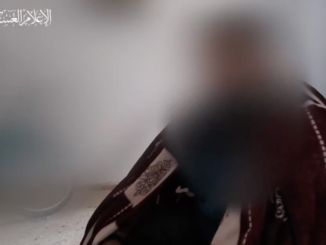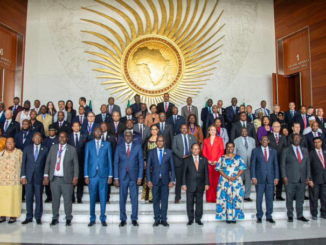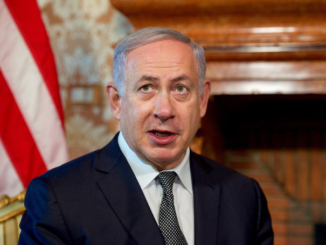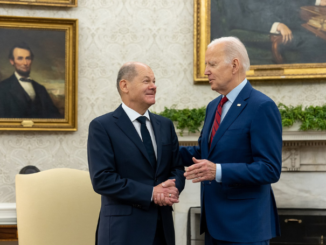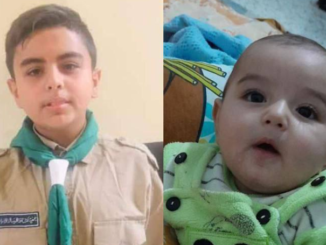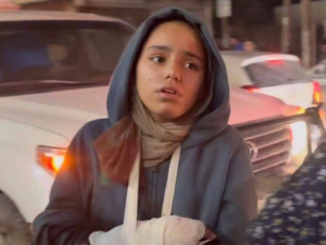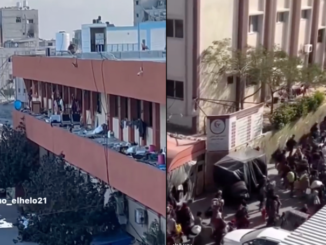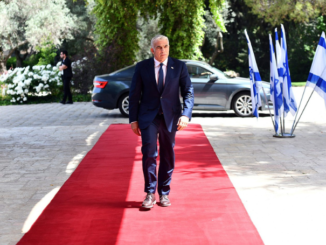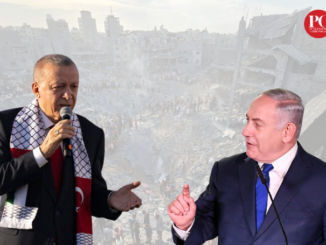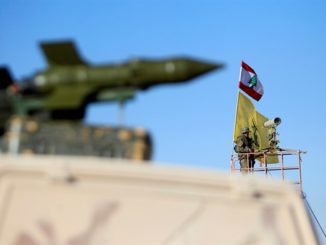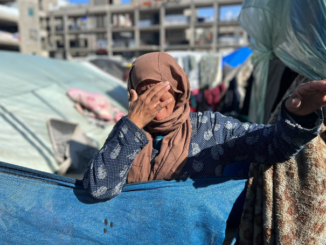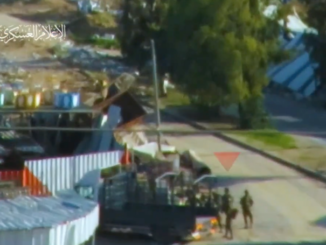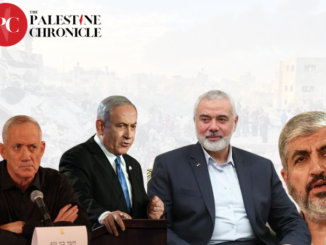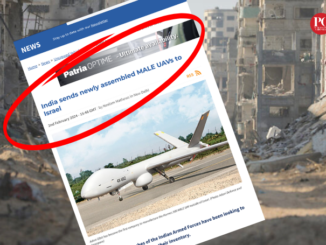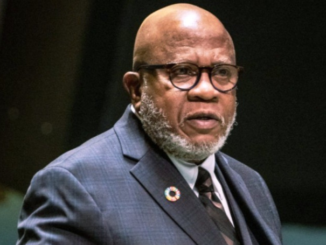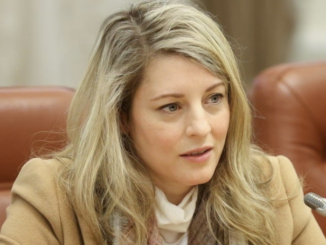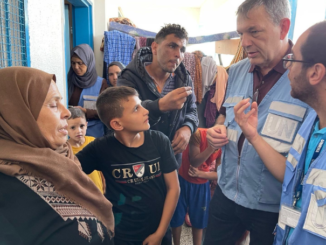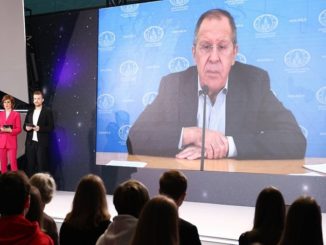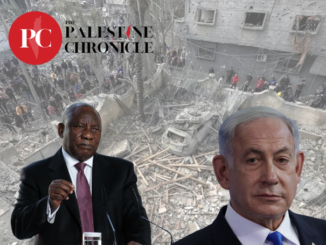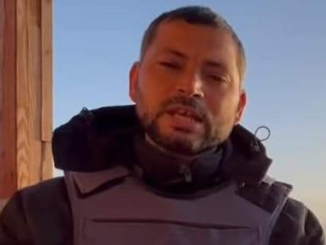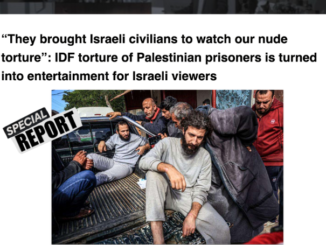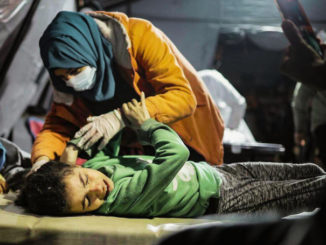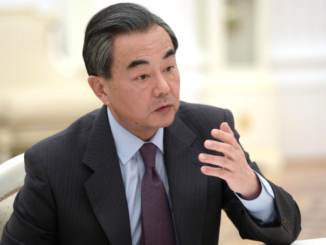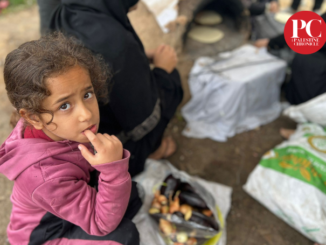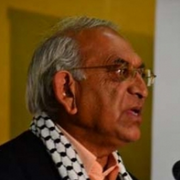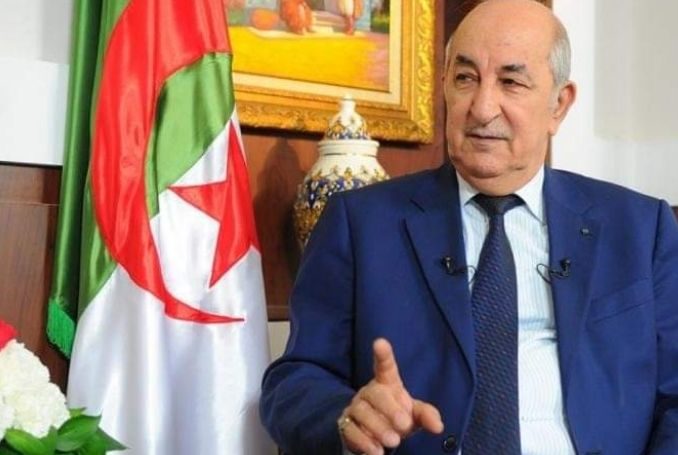World War III is here, playing out asymmetrically in military, financial, and institutional battlefields, and the fight is an existential one. The western Hegemon, in truth, is at war against international law, and only ‘kinetic military action’ can bring it to heel.
The Axis of Asymmetry is in full swing. These are the state and non-state actors employing asymmetrical moves on the global chessboard to sideline the US-led western rules-based order. And its vanguard is the Yemeni resistance movement Ansarallah.
Ansarallah is absolutely relentless. They have downeda $30 million MQ-9 Reaper drone with just a $10k indigenous missile.
They are the first in the Global South ever to use anti-ship ballistic missiles against Israel-bound and/or -protecting commercial and US Navy ships.
For all practical purposes, Ansarallah is at war with no less than the US Navy.
Ansarallah has captured one of the US Navy’s ultra-sophisticated autonomous underwater vehicles (AUV), the $1.3 million Remus 600, a torpedo-shaped underwater drone able to carry a massive payload of sensors.
Next stop: reverse engineering in Iran? The Global South eagerly awaits, ready to pay in currencies bypassing the US dollar.
All of the above – a maritime 21st-century remix of the Ho Chi Minh trail during the Vietnam War – spells out that the Hegemon may not even qualify as a paper tiger, but rather as a paper leech.
Lula tells it as the Global South sees it
Into the Big Picture – linked to the relentless ongoing genocide perpetrated by Israel in Gaza – steps a true leader of the Global South, Brazil’s President Luiz Inácio Lula da Silva.
Lula spoke in the name of Brazil, Latin America, Africa, BRICS 10, and the overwhelming majority of the Global South when he cut to the chase and defined the Gaza tragedy for what it is: a genocide. No wonder the Zionist tentacles across the Global North – plus its Global South vassals – went bonkers.
The genocidals in Tel Aviv declared Lula as persona non grata in Israel. Yet Lula did not assassinate 29,000+ Palestinians – the overwhelming majority of whom were women and children.
History will be unforgiving: it’s the genocidals that will eventually be judged as personae non grata to all of humanity.
What Lula said represented BRICS 10 in action: this was obviously cleared before with Moscow, Beijing, Tehran, and, of course, the African Union. Lula spoke in Addis Ababa, and Ethiopia is now a BRICS 10 member.
The Brazilian president was extremely smart in timing his Gaza fact-check to be on the table during the G20 meeting of Foreign Ministers in Rio. Way beyond BRICS 10, what’s happening in Gaza is a consensus among the non-Western G20 partners – who are actually a majority. No one, though, should expect any serious follow-up inside a divided G20. The heart of the matter remains in the facts on the ground.
Yemen’s fight for “our people” in Gaza is a matter of humanistic, moral, and religious solidarity – these are foundational tenets of the rising eastern “civilizational” powers, both domestically and in international affairs. This convergence of principles has now created a direct link – extrapolating to the moral and spiritual spheres – between the Axis of Resistance in West Asia and the Slavic Axis of Resistance in Donbass.
Extreme attention should be paid to the timescale. The Donetsk People’s Republic (DPR) forces and Russia have spent two hard-fought years in Novorossiya just to arrive at the stage where it becomes clear – based on the battlefield and cumulative facts on the ground – that “negotiations” mean only the terms of Kiev’s surrender.
In contrast, the job of the Axis of Resistance in West Asia has not even started. It’s fair to argue that its strength and full sovereign involvement have not been deployed yet (think Hezbollah and Iran).
Hezbollah Secretary-General Hassan Nasrallah, with his proverbial subtlety, has hinted there’s, in fact, nothing to negotiate on Palestine. And if there would be a return to any borders, these would be the 1948 borders. The Axis of Resistance understands that the whole Zionist Project is unlawful and immoral. But the question remains how to throw it, in practice, into the dustbin of History?
Possible – avowedly optimistic – scenarios ahead would include Hezbollah taking possession of the Galilee as a step toward the eventual retaking of the Israeli-occupied Golan Heights. Yet the fact remains that even a united Palestine does not have the military capability to reconquer stolen Palestinian lands.
So the questions posed by the overwhelming majority of the Global South that stands with Lula may be: Who else, apart from Ansarallah, Hezbollah, Hashd al-Shaabi, will join the Axis of Asymmetry in the fight for Palestine? Who would be willing to come to the Holy Land and die? (After all, in Donbass, it’s only Russians and Russophones who are dying for historically Russian lands)
And that brings us to the way towards the endgame: only a West Asian Special Military Operation (SMO), to the bitter end, will settle the Palestinian tragedy. A translation of what happens across the Slavic Axis of Resistance: “Those who refuse to negotiate with Lavrov, deal with Shoigu.”
The menu, the table, and the guests
That out-of-his-depth closet neocon, Secretary of State Tony Blinken, let the cat out of the bag when he actually defined his much cherished “rules-based international order”: “If you’re not on the table, you are on the menu.”
Following his own hegemonic logic, it’s clear that Russia and the US/NATO are on the table while Ukraine is on the menu. What about the Red Sea? The Houthis defending Palestine against US–UK–Israel are clearly on the table, while Western vassals supporting Israel in a maritime way are clearly on the menu.
And that’s the problem: the Hegemon – or, in Chinese scholarly terminology, “the crusaders” – have lost the power to place the name cards on the table. The main reason for this authority collapse is the build-up of serious international meetings sponsored by the Russia–China strategic partnership during the past two years since the start of the SMO. It’s all about sequential planning, with long-term targets clearly outlined.
Only civilizational states can do that – not plutocratic neoliberal casinos.
Negotiating with the Hegemon is impossible because the Hegemon itself prevents negotiations (see the serial blocking of ceasefire resolutions at the UN). Additionally, the Hegemon excels in instrumentalizing its client elites across the Global South via threats or kompromat: see the hysterical reaction of Brazilian mainstream media to Lula’s verdict on Gaza.
What Russia is showing the Global South, two years after the start of the SMO, is that the only path to teach a lesson to the Hegemon has to be kinetic, or “military-technical.”
The problem is no nation-state can compare to nuclear/hypersonic/military superpower Russia, in which 7.5 percent of the government’s budget is dedicated to military production. Russia is and will remain on a permanent war footing until Hegemon’s elites come to their senses – and that may never happen.
Meanwhile, West Asia’s Axis of Resistance is watching and learning, day after day. It’s always crucial to keep in mind that for all the resistance movements across the Global South – and that also includes, for instance, West Africans against French neo-colonialism – the geopolitical fault lines could not be starker.
It’s a matter of the collective West versus Islam; the collective West versus Russia; and sooner rather than later, a substantial part of the West, even reluctantly, versus China.
The fact is we are already immersed in a World War that is both existential and civilizational. As we stand at the crossroads, there is a bifurcation: either escalation towards overt “kinetic military action,” or a multiplication of Hybrid Wars across several latitudes.
So it’s up to the Axis of Asymmetry, cool, calm, and collected, to forge the underground corridors, passages, and trails capable of undermining and subverting the US-led, unipolar, rules-based international order.
The views expressed in this article do not necessarily reflect those of The Cradle.
MOST POPULAR
- Question in Beirut: Will the Syrians, Saudis, Iranians strike a new Lebanon deal?
- China backs Palestinians’ right to ‘armed struggle’ against Israeli occupation
- IMF vows to support Egypt as nation braces for mass displacement of Gazans
- Somalia grants Turkiye defense rights in ‘historic’ maritime deal
- Red lines: Will Iran enter the regional war?
Filed under: China, Lebanon Islamic Resistance - Hezbollah, Russia, Ukraine, US-led NATO Alliance, USA, Vietnam, Yemen | Tagged: African Union, Age of Multipolarity, American Hegemony, Axis of Asymmetry, Brazilian President Lula da Silva, BRICS alliance, BRICS+, de-dollarization, End of Western hegemony, G20, Global South, Ho Chi Minh, Occupied Palestine, Pepe Escobar, Sayyed Hassan Nasrallah, Slavic Axis of Resistance, Special Military Operation (SMO), The Axis of Resistance, U.S. Navy, US Secretary of State Antony Blinken, Yemeni Ansarullah | Comments Off on The Axis of Asymmetry takes on the ‘rules-based order’






